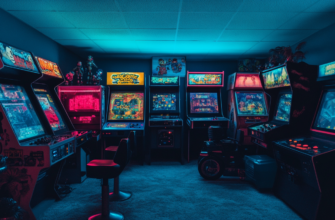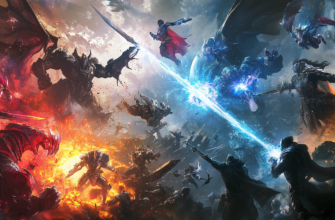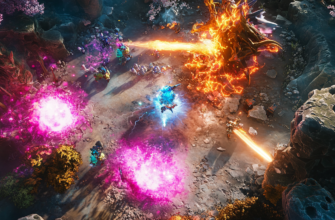- What strategy games can teach you and how they develop useful skills
- Understanding strategy games and why they matter
- 1. Problem-solving skills
- 2. Strategic thinking and foresight
- 3. Resource management and multitasking
- 4. Patience and delayed gratification
- 5. Critical thinking and adaptability
- Final thoughts: Get strategic, get smart
What strategy games can teach you and how they develop useful skills
Hey bros, you ever wonder why you can’t stop playing strategy games? Is it just about crushing your enemies and basking in victory? Or is there something deeper going on? Well, I’m here to tell you it’s more than just good fun—it’s brain food. Strategic games, like Starcraft, Civilization, XCOM, and even Age of Empires, aren’t just entertainment—they can boost some serious skills that go beyond the screen. Let’s dive into what skills strategy games develop and how they can make you a legitimate tactician in both gaming and real life.
Understanding strategy games and why they matter
First things first: What exactly is a strategy game? Strategy games are types of video games where you, the player, make calculated decisions to achieve a long-term goal. You manage resources, plan ahead, adapt, and execute. These games require patience, analysis, and a level head. Sure, they might feel tough or frustrating at times, but trust me, the skills you’re building while playing are invaluable.
These games often come in two flavors:
- Real-Time Strategy (RTS): In these games, the action never stops. Think Starcraft or Command & Conquer. You have to manage resources, build units, and plan your attacks in real-time.
- Turn-Based Strategy (TBS): Here, you take turns, which gives you more time to think. Civilization, the Total War series, and XCOM are prime examples. You still need to plan ahead, but you’ll get a breather after your maneuver to see how the opponent responds.
Now that we’ve set the stage, let’s talk about what skills strategy games can develop while you play. You might be surprised at how broad these skills are and how they can be applied outside gaming.
1. Problem-solving skills
Let’s be real. At the core of every strategy game is problem-solving. Whether you’re trying to figure out how to fend off an unexpected attack or how to resource-manage like a pro, your brain is constantly working out solutions. The problems you face in these games aren’t always straightforward, and more often than not, you’ll need a bit of creativity.
Here’s how strategy games can boost your problem-solving abilities:
- They teach you to break the problem into smaller steps. If you’ve ever played a long multiplayer match in Starcraft, you know you have to plan your construction, economy, and troop movements piece-by-piece.
- You learn to manage multiple aspects simultaneously, like balancing defense and offense in Age of Empires.
- Games like XCOM force you to adapt, because every decision you make in one turn impacts the next in unpredictable ways. You master solving problems faster, under pressure.
How does this help you off-screen? Well, you’re more efficient in work, daily life, and, to be honest, less likely to freak out when things go haywire. You’ve already trained your brain to calmly search for a solution in intense situations.
2. Strategic thinking and foresight
If you play any strategy game like Civilization or Total War, you know it’s all about the long game. You aren’t making decisions for what happens *this turn*, but what happens *ten turns from now*. This helps you build foresight–a skill that’s useful in day-to-day life for things like project planning, goal setting, and personal development.
How strategy games help with long-term thinking:
- Planning ahead: In Civilization, if you’re not thinking about where your empire will be in terms of technology or military strength several turns down the line, you’re probably getting steamrolled by another empire. Long-term vision = strategic power.
- Always considering resources: Games like Starcraft make you balance military strength and economic growth at the same time. Foresight comes from understanding when you can splurge and when you must save.
This skill is clutch in real life. Whether it’s financial planning, job progression, or even creating a schedule for achieving fitness goals, strategy games teach you how to make the right choices looking beyond the “now.”
3. Resource management and multitasking
Ever played a real-time strategy game like Starcraft or Age of Empires, and suddenly feel like a juggler? You’re managing your economy, training troops, keeping an eye on enemies, and more—all at once. Trust me, after a few rounds of that, resource management and multitasking in your day-to-day life becomes second nature.
Here’s what strategy games teach about resource management:
- You learn to prioritize under pressure. If you’ve ever been low on resources in Age of Empires and had to decide whether to reinforce your army or invest in technology, you know what I mean.
- You become more comfortable with balancing limited resources efficiently. Mastering SCVs (or villagers) in Starcraft teaches you to maximize your production output without overspending. You hone that balance of expenditure and savings.
“Strategy games teach you how to make smart investments in time, energy, and resources. They’re the MBA of gaming.”
Applying this skill is simple: From managing your finances better to handling multiple projects at work, you’re basically turning into a resource-juggling mastermind.
4. Patience and delayed gratification
In most strategy games, victory doesn’t come swiftly. It requires hours of careful planning, observation, and adaptation. You’re slowly building towards a huge payoff, and guess what? That takes patience.
How strategy games teach patience:
- Victory is sweeter after working for it. In games like Civilization, you can’t just rush to world conquest. It takes turns after turns of diplomacy, economics, or military build-up before the victory screen flashes.
- Adaptation over time: When playing a prolonged campaign in Total War, there are setbacks. It’s not the setbacks that define you; it’s how patient and long-term oriented you are in overcoming them.
In real life, patience is crucial. Whether we are talking about career growth, waiting for results from a long project, or just life’s unexpected curveballs, strategy games help you master the art of waiting—and making the end result well worth it.
5. Critical thinking and adaptability
The ability to think critically and adapt is perhaps one of the most important skills in life. Strategy games like XCOM and Starcraft constantly throw curveballs at you—ever go into a battle thinking you had it all figured out, only to find your opponent had a trick up their sleeve? Yeah, we’ve all been there…
Critical thinking helps build adaptability:
- Constant analysis: In games like XCOM, you’re always analyzing your environment, enemies, and resources to figure out your next optimal move. Nailing those tactical decisions can be the difference between an easy victory or total defeat.
- Adapting to change: Let’s say your carefully planned strategy falls apart in Total War. Do you give up? Nah, you get creative with what you have left and adjust your tactics. Adapt, overcome, win.
This skill transfers to real life very smoothly. In work, school, or even personal relationships—change happens whether we like it or not. If you’ve already trained yourself to analyze and adapt from a strategy game, navigating real-world changes becomes way easier.
Final thoughts: Get strategic, get smart
You see bros, it’s not just about winning the game. Every hour you pour into strategy games is actually time spent getting smarter. Whether you’re developing problem-solving skills, strategic thinking, resource management, patience, or adaptability, you’re learning stuff that goes beyond the battlefields of Starcraft or the turn-based mechanics of XCOM.
Next time someone tells you gaming wastes time, just hit ‘em with the truth. You’re becoming a better planner, leader, analyst, and multitasker— and you might just crush them in a game while you’re at it.
If you aren’t already playing, pick up a strategy title and start leveling up your real-world abilities today—because becoming smarter doesn’t have to be boring. See you on the battlefield!

















